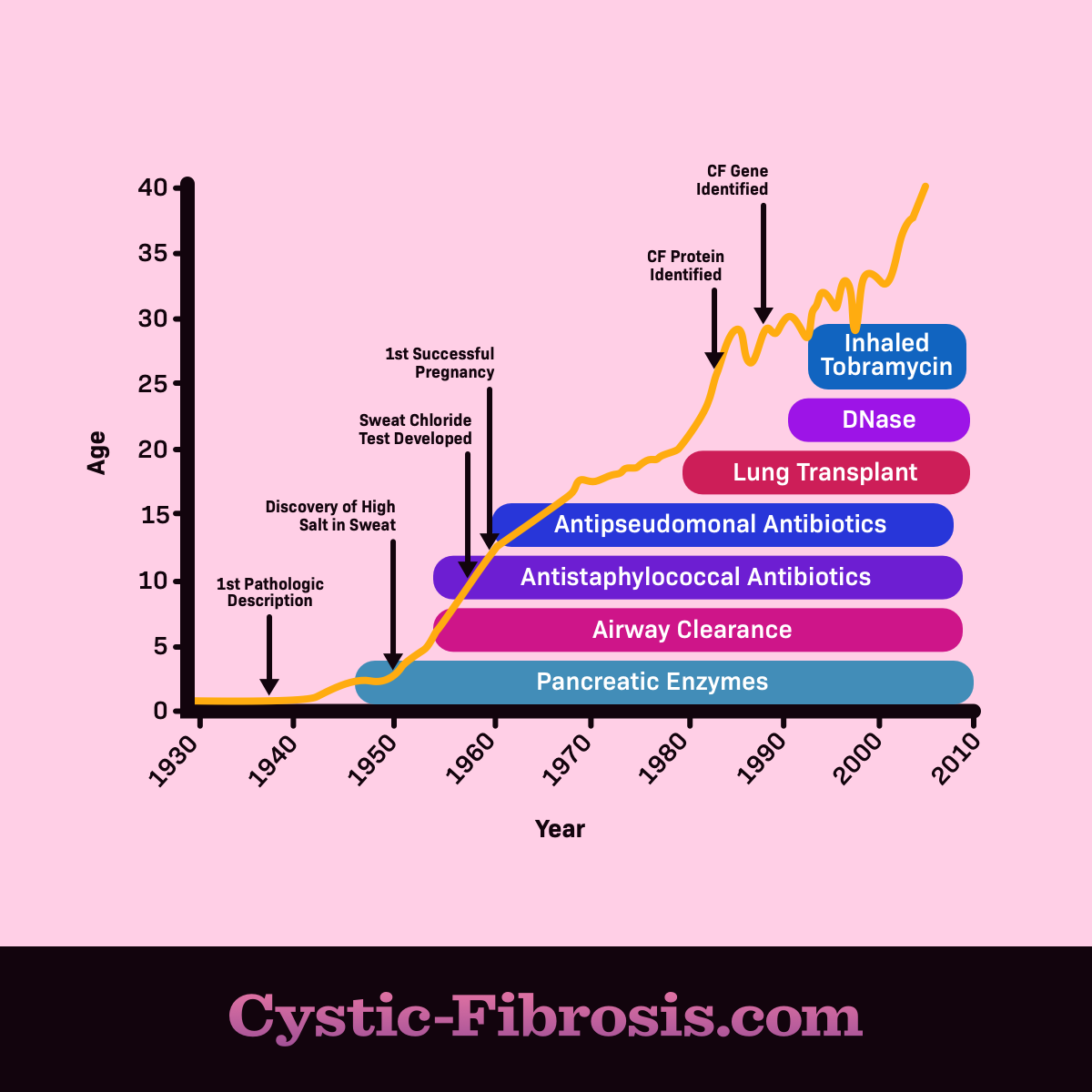How Long Do Patients with Cystic Fibrosis Live?
Reviewed by: HU Medical Review Board | Last reviewed: September 2019 | Last updated: April 2024
While there is no cure yet for cystic fibrosis (CF), people with CF are living longer, healthier lives than ever before. In fact, babies born with CF today are expected to live into their mid-40s and beyond. Life expectancy has improved so dramatically that there are now more adults with cystic fibrosis than children.
This progress resulted from many medical advances in CF treatment and advocacy by patient groups such as the Cystic Fibrosis Foundation (CFF). The Foundation began a patient registry in the 1960s that tracks the care each patient with CF receives. This data is then used to create improve the quality of care and drive related research and drug discovery.1
Looking back at the history of cystic fibrosis life expectancy
Prior to the 1950s, children with the most common and most serious forms of cystic fibrosis rarely lived past age 5. In the 1950s and 1960s pancreatic enzymes, airway clearance techniques, and antistaphylococcal antibiotics were introduced as treatments and CF life expectancy began to increase.
In the 1960s, average life expectancy grew to age 15 as antipseudomonal antibiotics were added to the treatment arsenal. Also, the first woman known to have CF had a successful pregnancy. Between the 1970s and 1990s, life expectancy gradually increased to age 31, thanks to still more treatments, including lung transplants and DNase.
Figure 1. Average life expectancy upon creation of new CF treatment methods
Then, between 1993 and 2017, median life expectancy leapt to age 44. This means that among those born with CF in the U.S. between 2013 and 2017, half are predicted to live to age 44 or more.1,2
A 2017 study looked at patient registry statistics in the U.S. and Canada, comparing 110 U.S. care centers with 42 Canadian centers, and found that those born in Canada tend to live 10 years longer. The difference in CF life expectancy seems to be connected to access to lung transplants, post-transplant care, and differences in the two countries’ health systems.3
Living productive lives with cystic fibrosis
According to the CFF’s Patient Registry, children with CF grow up to lead full, productive lives despite their disease. In 2017, the registry found that:
Senior citizens with cystic fibrosis
Thanks to advances in DNA testing, doctors are identifying more and more people with CF for the first time well into their 50s, 60s, and 70s.
- The oldest person diagnosed with CF for the first time in the U.S. was 82, in Ireland was 76, and in the United Kingdom was 79.4
- Those diagnosed after age 50 tend to have a long history of frequent bouts of colds, sinus infections, pneumonia, stomach pains, acid reflux, and trouble gaining or keeping on weight.5
- Previous incorrect diagnoses include asthma, tuberculosis, and chronic bronchitis.
- Adult-diagnosed females had survival rates equal to males, compared to females diagnosed in childhood who have shorter life expectancies than males.6
While doctors once thought that these outliers had a less severe form of cystic fibrosis, now some doctors believe these patients have delayed CF. One study found that people diagnosed past age 40 had equally severe lung disease as those diagnosed in childhood.6
Predicting the future of CF life expectancy
While doctors know more than ever about CF, they still cannot reliably predict which patients will become long-term survivors based on their DNA results. Research seems to indicate that body weight, insurance coverage, ability to buy CFTR modulators, the latest group of CF drugs that improve the function of the CFTR protein, may have an impact on long-term survivorship.5,6
